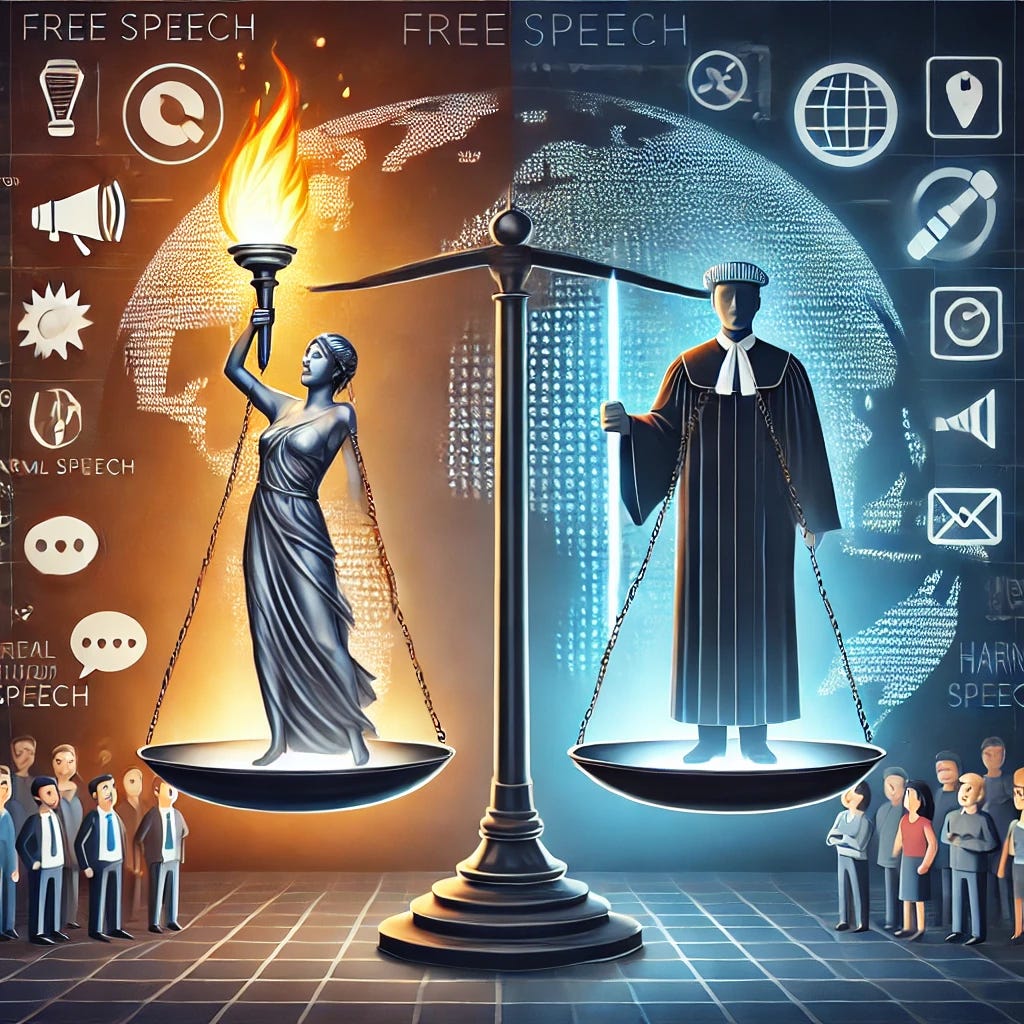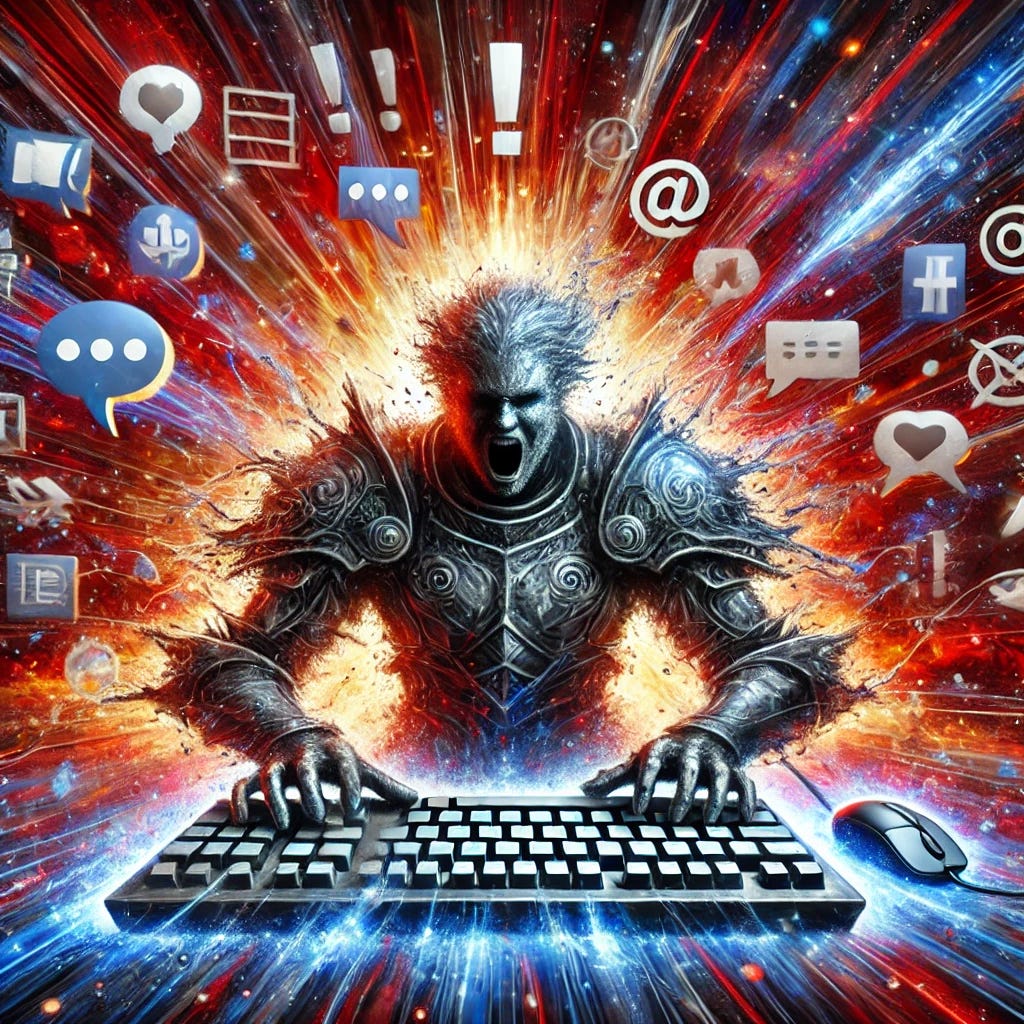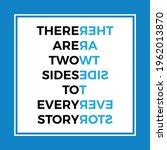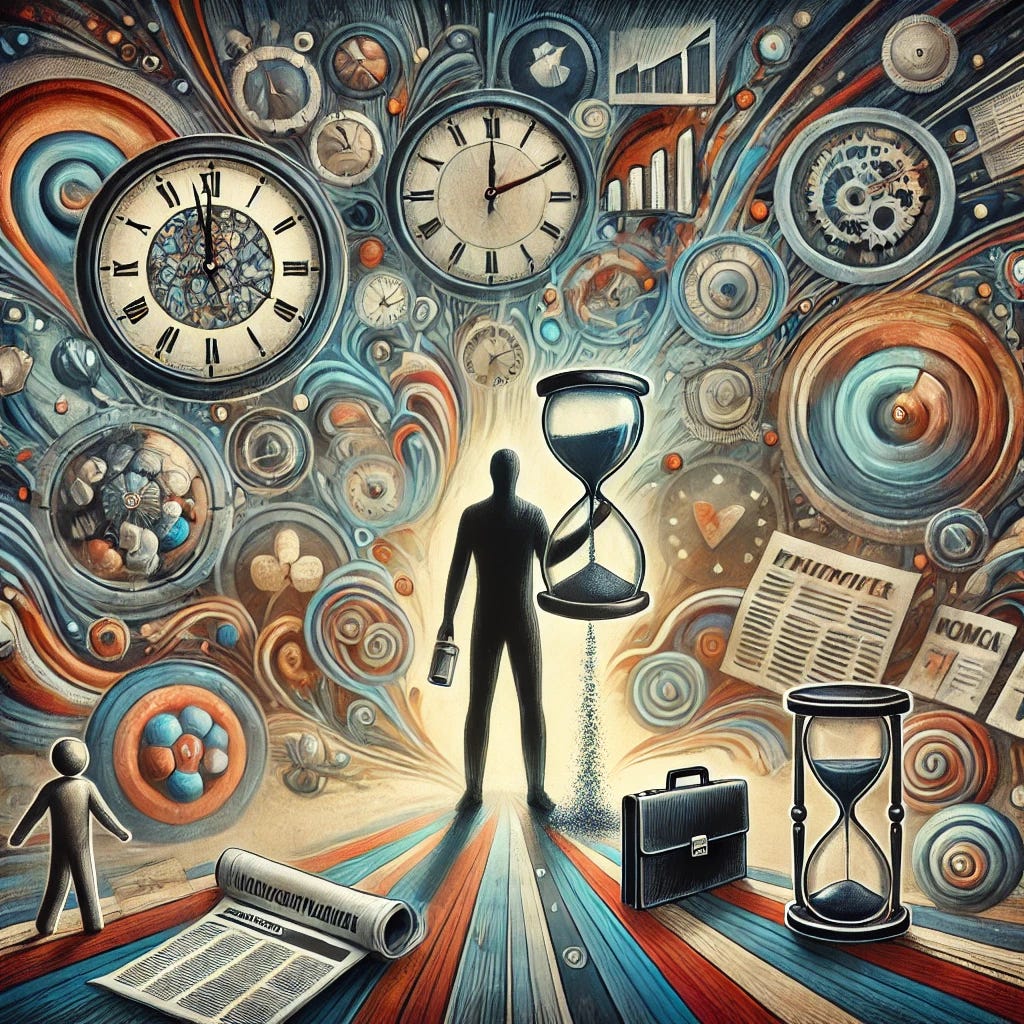Finding the Truth Needle in the Expert Haystack: Searching for Balanced Perspective
Figuring out what is true anymore is time-consuming and absolutely exhausting!
Story-at-a-glance
In a world of polarized opinions, finding reliable truth has become a challenge as experts present conflicting perspectives on key issues.
The constant influx of information forces us to navigate biases, corporate influences, and deeply ingrained beliefs to discern what’s accurate.
By setting boundaries, prioritizing values, and embracing curiosity over certainty, we can maintain a balanced approach to staying informed and living fully.
Checking in
I’ve been checking in to see what’s on my mind and heart lately. A constant theme in my conversations with people lately is how we can possibly know what is true anymore. It’s a conversation that’s always on my lips and talked about quite frequently, so much so that it haunts me and triggers my curiosity.
Pick a subject, any subject
These days, one can easily find “experts” on completely opposite ends of the spectrum who are equally knowledgeable, equally credentialed, and equally well-respected with seeming confidence in everything they’re saying about that exact subject you just picked.
How confusing is that?
Some say that uncertainty is intentionally seeded as a way to keep us insecure and divided as a collective so we’re easier to manipulate and control. I have no doubt that’s true in some cases and not true in others.
What’s most important is to remain aware that it’s possible while maintaining an equally discerning mind for those that we agree with just as much as those we disagree with, but for most, that seems to be quite a challenge…and it is. But that doesn’t mean it’s not worth the valiant effort because it’s essential to move forward as a collective in intact healthy ways.
Why do people have so much certainty?
I’m not totally sure why, but one of my thoughts about it is that the loudest voices from the ultra-conservative to the ultra-liberal ends of the spectrum are often the most disagreeable personalities who love to complain about something l-o-u-d-l-y, which is usually “the other side”.
Disagreeable personalities often think know they are right and will hammer away at others trying to argue them into submission, while agreeable personalities will often just walk away or not say anything at all. While the former is a problem, it’s feeling like the latter is even more of a problem because many of us just don’t want to fight.
In my opinion, this is causing the more moderate voices to self-censor and not say anything publicly about a multitude of our social issues. This leaves us with the illusion that there are more of them that feel that other way than there are of us that feel this way. From my perspective, this is creating unhealthy social illusions that’s keeping more moderate voices tamped down which is tugging at the fabric of our country.
Another reason for seeming certainty is because we have many keyboard warriors who are totally different in person than they are from behind a screen. I see them all of the time which perplexes me.
Which one is the true them? Please stand up.
Controversial topics
Below are a variety of some of the most challenging topics that spark debates amongst experts and regular people alike these days. For most, each of these issues create tension due to our deep-rooted differences in values, interpretations, and priorities.
Climate Change and Environmental Policy
Controversy: Experts agree climate change is real, but there's debate over its severity, causes, and the best solutions. Some prioritize aggressive measures like renewable energy and carbon taxes, while others emphasize economic concerns or downplay human impact.
Who gets to decide which is right?
Covid Vaccinations and Public Health
Controversy: The COVID-19 pandemic reignited debates about vaccines. While some experts supported covid vaccinations for herd immunity, others didn’t due to the newer technology and no longer term testing. Some people distrust vaccine safety or government mandates, leading to resistance fueled by personal freedom concerns and misinformation on both sides.
Who gets to decide the “correct” path?
Abortion Rights and Reproductive Health
Controversy: People are divided on the ethical and legal implications. Some view abortion as a fundamental right tied to bodily autonomy, while others argue that life begins at conception, prioritizing the rights of the fetus. Religious, moral, and political beliefs clash.
Who gets to decide for ALL of us?
Gun Control
Controversy: Experts debate the effectiveness of gun control in reducing violence. Supporters of gun rights argue it's a constitutional right for self-defense and preventing tyranny, while opponents stress public safety, advocating for stricter laws to prevent gun-related violence.
Who gets to make the decision and why are they making the one they’re making or not making?
Immigration Policy
Controversy: People and experts disagree on how open our borders should be. Some argue for stricter immigration laws to protect national security and jobs, while others promote a more open policy, emphasizing humanitarian concerns, diversity, and economic benefits.
Who gets to decide?
Economic Inequality and Wealth Distribution
Controversy: While experts acknowledge rising income inequality, the best solutions remain contentious. Some advocate for redistributive policies like higher taxes on the wealthy, while others believe in free-market principles and worry these measures stifle economic growth.
Who gets to decide, the powerful and the wealthy who already have it good or…?
Health Care Reform
Controversy: There is widespread debate over the role of government in providing healthcare. Some argue for universal healthcare as a right (The U.S. is the only developed country in the world that doesn’t offer it), while others fear government inefficiency, preferring privatized systems or hybrid models. Cost, access, and quality are major points of contention.
Who gets to decide?
Free Speech vs. Censorship
Controversy: Balancing free speech and combating harmful speech divides experts and regular people. Free speech advocates argue against censorship, even for offensive ideas, while others emphasize the need to protect marginalized groups from speech that incites violence or hatred.
Who’s the decider about what’s offensive and what’s not?
Education Policy and Curriculum Content
Controversy: Debates over what schools should teach reflect larger cultural conflicts. Experts disagree on topics like critical race theory, sex education, and the role of religion. Parents and policymakers clash over control of educational content and its impact on children’s development.
Who get’s to decide?
AI and Technology’s Role in Society
Controversy: Experts are conflicted about the risks and benefits of AI. Some view AI as a tool for innovation, enhancing human capabilities, while others warn about job displacement, ethical concerns in decision-making, and privacy issues. Some people may fear losing control to machines -ala the movie Terminator- or see AI as a tool for empowerment.
Who gets to make this very important decision?
These issues are controversial because they involve deeply personal values, ideological differences, and conflicting priorities between individual freedoms and collective responsibilities…and we all feel differently about them in varying degrees.
Phew! No wonder we have difficulty knowing what to believe! I would muse that most average people who are absolutely certain about several of these may either be grounded in their ego because certainty makes them feel safe and more secure, or they are ignorant and can’t know it because that’s what the word ignorant means, as these issues are extremely complex.
Who gets to decide?
Generally, those in Congress who make our laws. Unfortunately, there are far more lobbyists whose job is to influence our congresspeople.
Did you know there are 5 pharmaceutical lobbyists alone for each congressperson?
And we wonder why our well-being doesn’t necessarily seem to be on their radar. I think the answer is pretty simple.
"In a world flooded with compelling arguments on all sides, the pursuit of truth requires not just a willingness to listen, but the courage to question our own, sift through illusion and truth, and live with the discomfort of uncertainty."
~Alecia
A needle in a haystack
So how do we separate out the most reliable “expert” sources from those that are less reliable or even flat out wrong? It can be difficult because our default is to generally believe those who are in alignment with our beliefs and value systems. They know that and take advantage of that. Yes, we’re manipulated by our own as much as we are by the other side, especially when power and money are at stake.
Decoding what’s true
This is the exhausting part that’s hard to parse out. This dilemma hits at the heart of what many of us are feeling right now. When institutions like the government, media, and science—which are supposed to guide us toward truth—are seen as compromised by corporate influence, financial incentives, or political agendas, it makes it incredibly difficult to trust what we hear or read…even from the “experts”.
The forces of greed, power, and control manipulate facts, and when scientific data or research is funded by organizations with vested interests, skepticism is not only understandable but necessary. The very entities people have traditionally turned to for truth seem entangled in a web of money and influence, making it tough to discern who’s being honest, but here are a few ways we can navigate this tricky landscape.
Follow the Money
When evaluating sources, it's important to know who is funding the research or media outlet, as funders often have specific agendas. Understanding these connections can help identify potential bias and reveal who benefits from the information presented.
Diversify Your Information Sources
To avoid bias, consume information from a variety of sources across different political and ideological spectrums comparing the presentation of the same event to help reveal inconsistencies or common threads of truth.
Remain vigilant, as even trusted sources can become corrupted over time, so it’s important not to get too comfortable relying on any one outlet because living on the autopilot of trust is one of the ways we’ve gotten ourselves into this mess.
Check for Peer Review
In scientific research, peer review (where other experts in the field critique the methodology and findings) is a good indicator of credibility. While it's true that corporate interests can sometimes influence studies, scientific consensus—reached over time and across many independent studies—can carry more weight than any single piece of research.
Examine Transparency and Methodology
Reliable sources often openly share their methodology and data, allowing others to scrutinize their work. If a study or report lacks transparency -like the Pfizer studies for Covid19 vaccines that they wanted to publicly dole out over 75 years (Why?) - or if it avoids disclosing important details, that can be a red flag. Clear, open methods build trust because they allow others to replicate or challenge the findings.
Media Literacy and Critical Thinking
Learning to recognize manipulative language, misleading statistics, or emotional appeals designed to sway opinion can help in filtering unreliable sources. Media outlets, for example, sometimes use sensationalism or selective facts to grab attention. Cross-checking facts and asking probing questions—like what’s missing or what’s the broader context—can help in avoiding manipulation.
Use Fact-Checking Tools (But Carefully)
Fact-checking organizations can be helpful, but even they have biases sometimes. It’s useful to consult multiple fact-checkers and look into their credibility as well. They provide context for claims and help you identify misinformation, but ultimately, they too are part of an information landscape influenced by human biases.
Trust, but Verify
Even if you feel inclined to trust a particular source, it’s a good practice to remain vigilant. Just because something aligns with your worldview doesn’t necessarily mean it’s accurate. Verify critical facts before fully accepting them, especially on important issues.
Look for Nonprofit, Independent Sources
There are nonprofit and independent media outlets and research organizations that work hard to maintain objectivity and transparency, without relying on corporate funding. While no source is perfect, these types of organizations often have fewer financial conflicts of interest and may be more trustworthy as a result.
Crowdsourcing
In some cases, large groups of independent individuals—often working collaboratively—can provide valuable information. While this method isn’t foolproof, it can sometimes produce more objective results because it’s harder for any single entity to control the narrative.
Acknowledge Uncertainty
It’s okay to not have all the answers. Sometimes, especially in areas where conflicting information is rampant, it’s better to hold off on forming a strong opinion until we’ve gathered more data or until the dust settles, ala Maya and The Forest of Mirrors. Living in that uncertainty can feel uncomfortable, but it’s part of a healthy process of critical inquiry.
These concerns reflect a broader societal challenge: in a world where power, money, and influence can distort truth, how do we reclaim a path toward understanding? It’s a daunting task, but by staying vigilant, thinking critically, and holding institutions accountable, we can start to piece together a more accurate picture of reality.
Who has the time to figure things out?
We only have so many free hours in a day so how do we do all that’s been outlined above while still trying to live balanced lives? We only have so much time and mental energy to spend on sifting through the noise and misinformation.
It can feel overwhelming, especially when trying to balance everything else in life—work, family, personal well-being, and simply enjoying the present moment. It’s impossible to fully vet every piece of information while also striving for a happy, healthy, and balanced life.
Here’s a fairly practical approach to consider for navigating these opposing tensions.
Focus on what matters most
Focus on topics that impact your life or align with your values, prioritizing issues affecting health, family, community, and well-being, while remaining more passive on others.
Create healthy information boundaries
Just as we set boundaries with people or activities (I hope you do), we can set boundaries for information consumption limiting news and social media to specific times, dedicating 15-30 minutes to trusted sources, thereby protecting leisure or family time.
Find trusted “go-to” sources
Identify a few trusted, balanced sources that consistently demonstrate fairness and integrity, reducing the need to constantly vet new information. Keep an eye on other sources as well, in case these trusted outlets become influenced or compromised over time.
I’ve provided some links below to some of my trusted resources. Please comment below to share some of your own to help instigate a ✨mindshift✨.
Lean on trusted people in your circle
Rely on well-informed friends, family, or colleagues as resources to provide clarity, save time, and keep fact-checking grounded in real-life discussions.
Stay curious and let go of perfection
Acknowledge that it’s okay not to know everything; curiosity is about staying open and flexible, not solving every puzzle or achieving perfection. Embrace the idea of holding questions in “animated suspension” until more understanding unfolds.
Accept ambiguity
Accepting ambiguity allows us to move on without constant certainty, preserving mental energy for living well, connecting with loved ones, and focusing on well-being.
Set clear priorities
Organize time and energy around core priorities—like family, exercise, and personal projects—allowing small, manageable moments for news and research without letting it dominate.
Make time for self-care and joy
To maintain balance and resilience, make time for self-care and joy—whether through hobbies, exercise, meditation, or simply resting—even amid the seriousness of staying informed.
Trusting our gut
Over time, developing intuition helps us filter information, allowing us to trust our gut and step back when something feels manipulated or overly sensational.
Be gentle with yourself (for the empaths amongst us)
Let go of guilt, trusting that doing our best with the time we have is enough—no one can solve every problem or understand every issue fully.
In the end, balance comes from accepting that while the pursuit of truth is important, so is living fully in the present. We’re all navigating a world of uncertainty, and it’s okay to leave some questions unanswered while still finding peace and happiness in the day-to-day. By taking a practical, selective approach, we can both stay informed and live a rich, joyful life.
A few more openly balanced sources to get you started
Here are some links to sources that attempt to be more balanced and less biased in their reporting or at the very least, openly rank stories on the spectrum from left to right while sharing both perspectives.
AllSides.com
Balanced News from the Left, Center and Right
AllSides provides headline roundups, featured content and newsletters from different perspectives on the week's biggest stories. It also rates the bias of news sources and helps users discover events that cross partisan divides.
Join 1440
Daily news without sarcasm, snark, or political opinion. Wading through thousands of headlines, op-eds, and algorithm-driven news feeds has left intellectually curious Americans frustrated with their options. That's why we started 1440 - a fact-driven news and knowledge resource that respects your time and intelligence. Curated by humans, not algorithms.
Ground.news
Ground News shows you how news stories are covered by different media sources across the political spectrum. You can see the headlines, sources, bias ratings, and blindspots for each story and explore local news in your area.
Breaking Points
Breaking Points is a video and podcast series hosted by Krystal (Democrat) and Saagar (Republican), who provide news and analysis from different political perspectives. The show launched in 2021 after the hosts left The Hill's Rising and aims to be independent from corporate influence.
Tangle
Unbiased news for busy people. Tired of one-sided political news? Get a 360-degree view of the biggest stories. Political news is broken. We’re fixing it. We're a non-partisan politics newsletter that gives you a 360-degree view on the news. No spin. No clickbait. Opinions from the left, right, and center so you can decide.
Starts with us
Our movement is founded on the beliefs that diversity of thought is a strength that leads to our most innovative ideas and that we must cooperate across our differences to solve the most pressing societal challenges of our time.
How do you determine which sources are valid and true in what they’re saying?
What sources do you follow that you believe in? We’d love to learn from you because we’re all in this together.
If you found value in this blog post, please share it with others who may be looking for options in figuring out what’s true and what’s not.










An excellent piece for moving further into the 21st century. It is going to be a wild ride and we need some clear thinking like this to guide us beyond our 'knee-jerk' reactions to crazy talk and the confusions by which we are surrounded.
Thank you so much for a beautiful piece of balance.